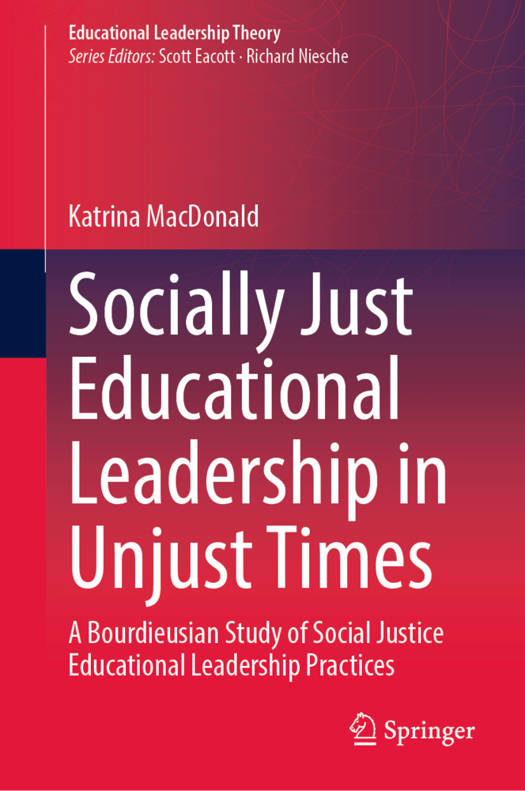
- Retrait gratuit dans votre magasin Club
- 7.000.000 titres dans notre catalogue
- Payer en toute sécurité
- Toujours un magasin près de chez vous
- Retrait gratuit dans votre magasin Club
- 7.000.0000 titres dans notre catalogue
- Payer en toute sécurité
- Toujours un magasin près de chez vous
Socially Just Educational Leadership in Unjust Times
A Bourdieusian Study of Social Justice Educational Leadership Practices
Katrina MacDonaldDescription
This book offers a richly observed study of three principals working in some of the most disadvantaged primary schools in Victoria, Australia. It explores their social justice understandings and practices in working to improve the educational outcomes for children in their schools, through autobiography, biographical interviews, in-depth interviews and observations. The work looks into their life histories, the formation of their primary and secondary habitus, and uncovers and examines their encounters with the public education field. Drawing on Pierre Bourdieu's theory of practice and his 'thinking tools', the book investigates how the principals' understandings of social justice are shaped by the intersection of their life and work histories.
This book is of interest to educational leadership scholars interested in the application of critical theory to studies of leadership. The book provides an exemplar for the application of Bourdieu's theory of practice, and it makes a strong contribution to Bourdieusian scholarship, social justice scholarship and educational leadership scholarship.
Spécifications
Parties prenantes
- Auteur(s) :
- Editeur:
Contenu
- Nombre de pages :
- 171
- Langue:
- Anglais
- Collection :
Caractéristiques
- EAN:
- 9783031476150
- Date de parution :
- 02-01-24
- Format:
- Livre relié
- Format numérique:
- Genaaid
- Dimensions :
- 156 mm x 234 mm
- Poids :
- 449 g

Les avis
Nous publions uniquement les avis qui respectent les conditions requises. Consultez nos conditions pour les avis.






